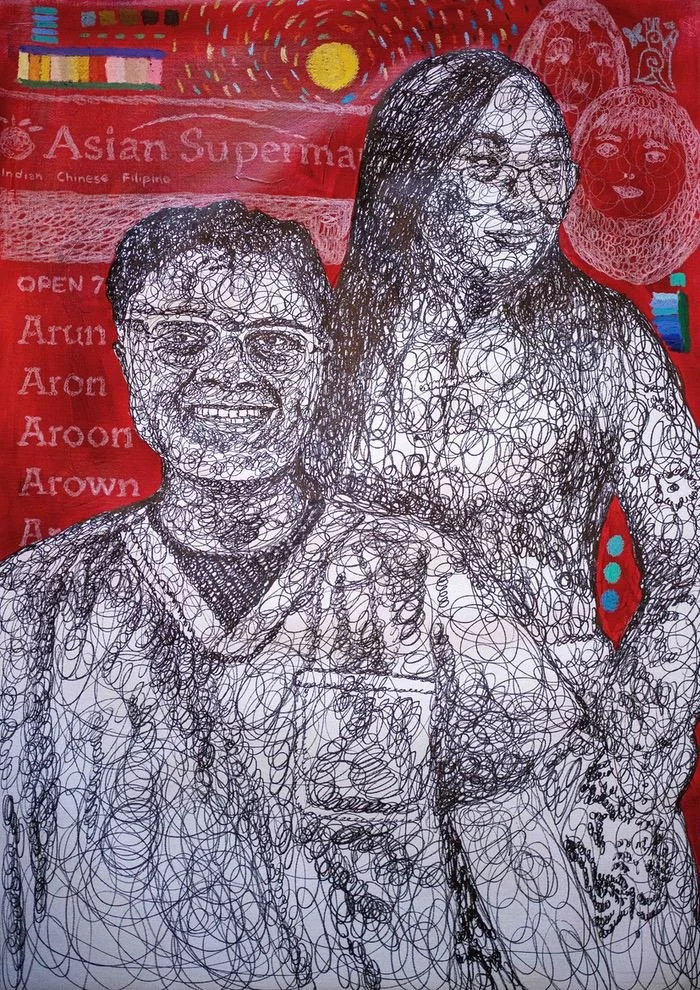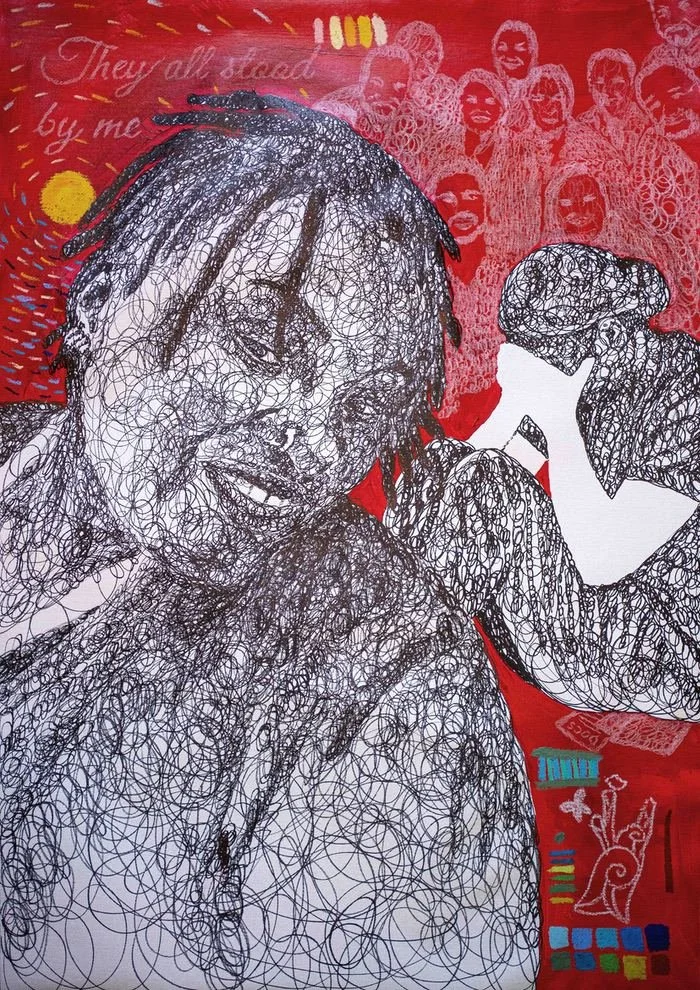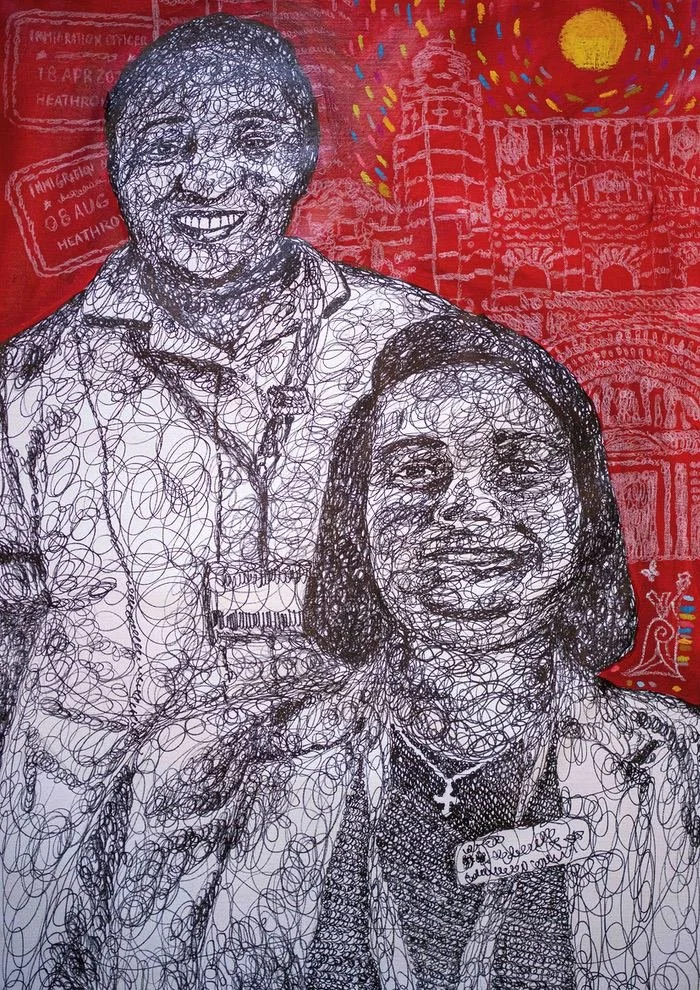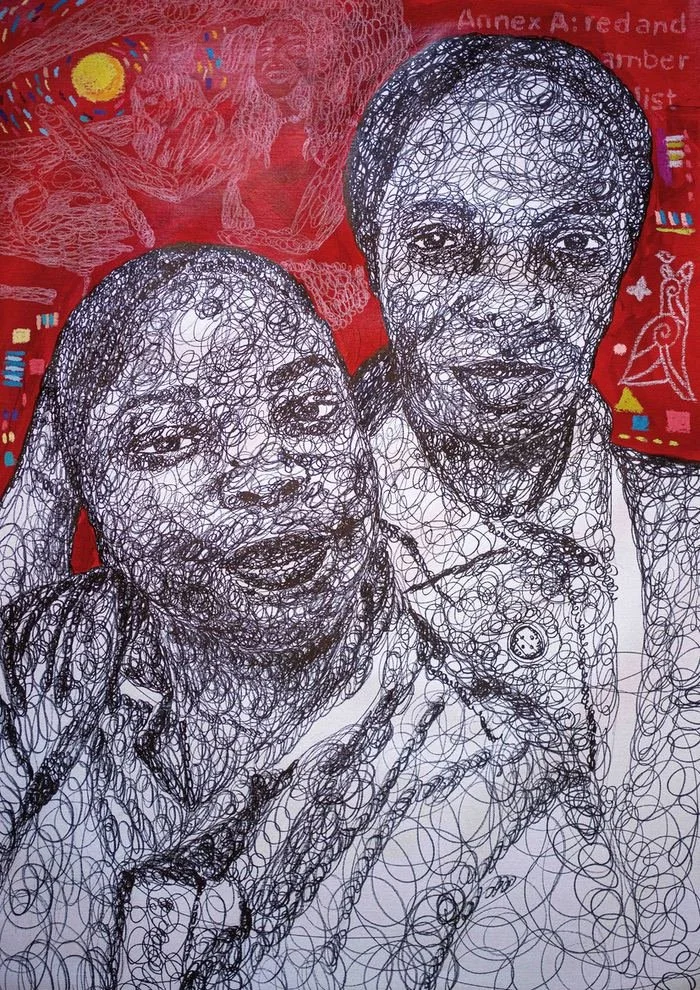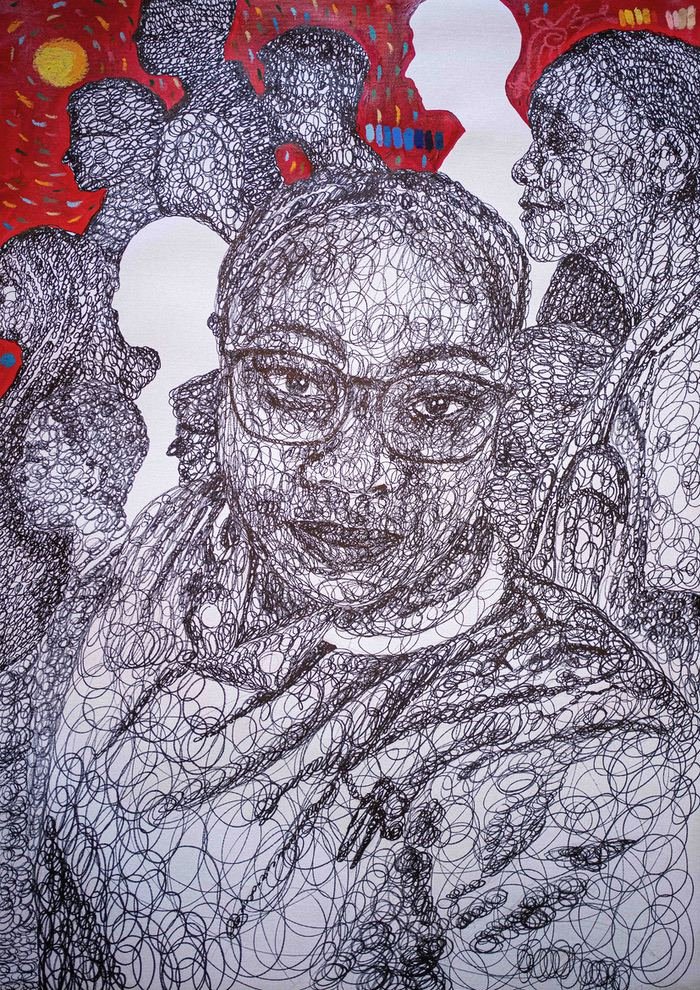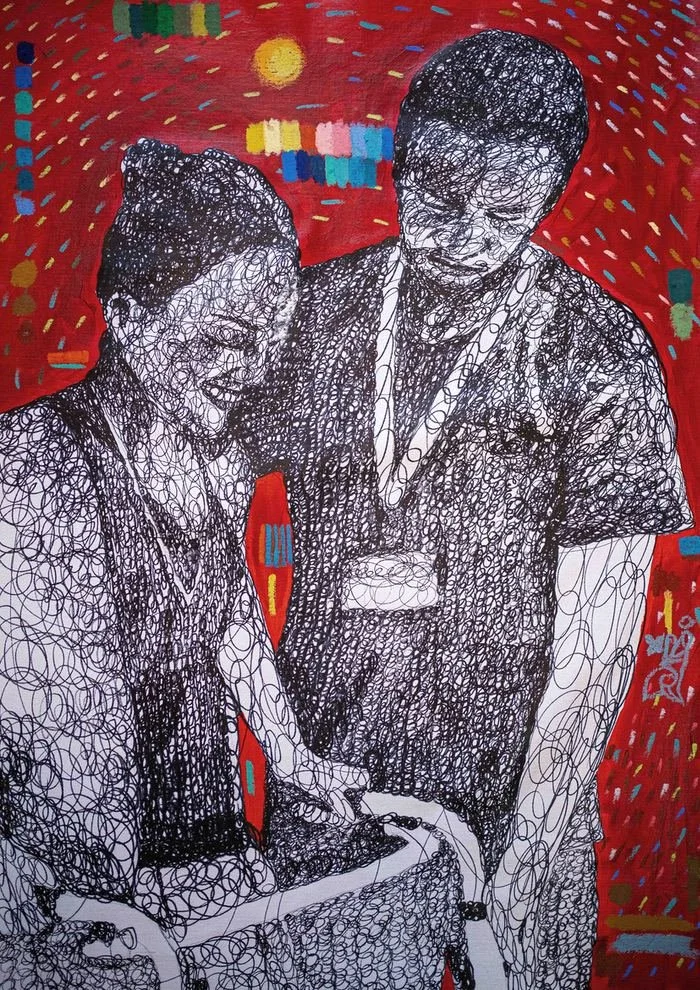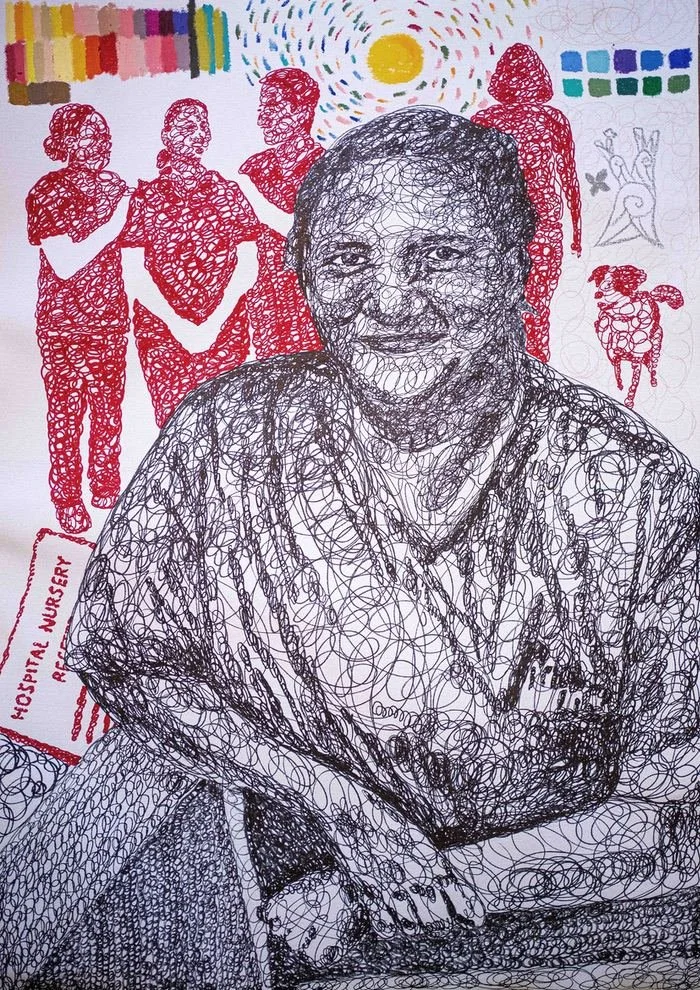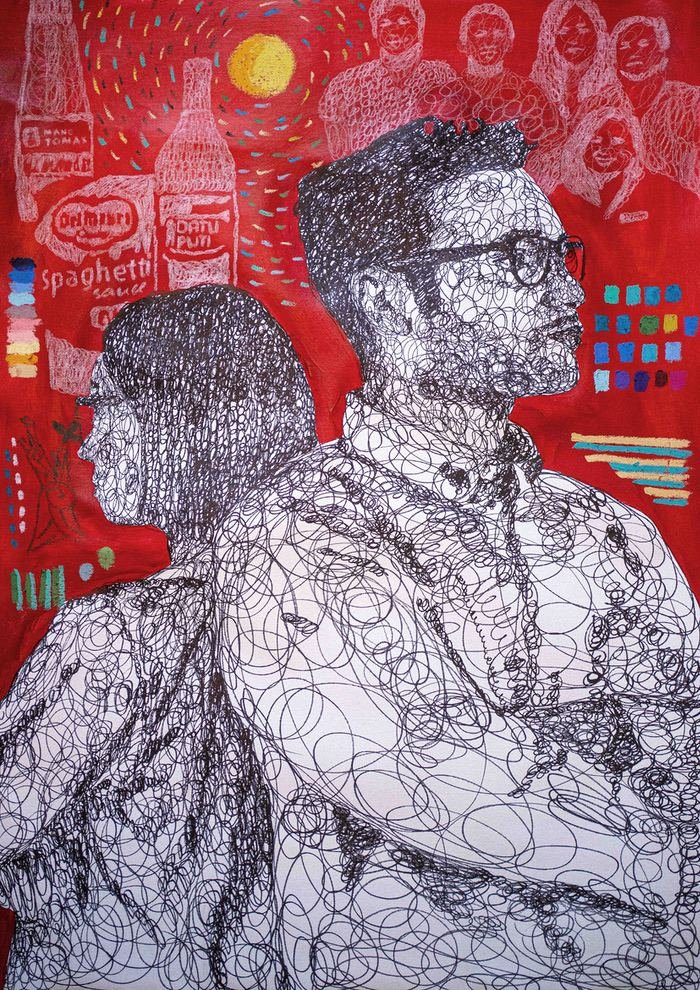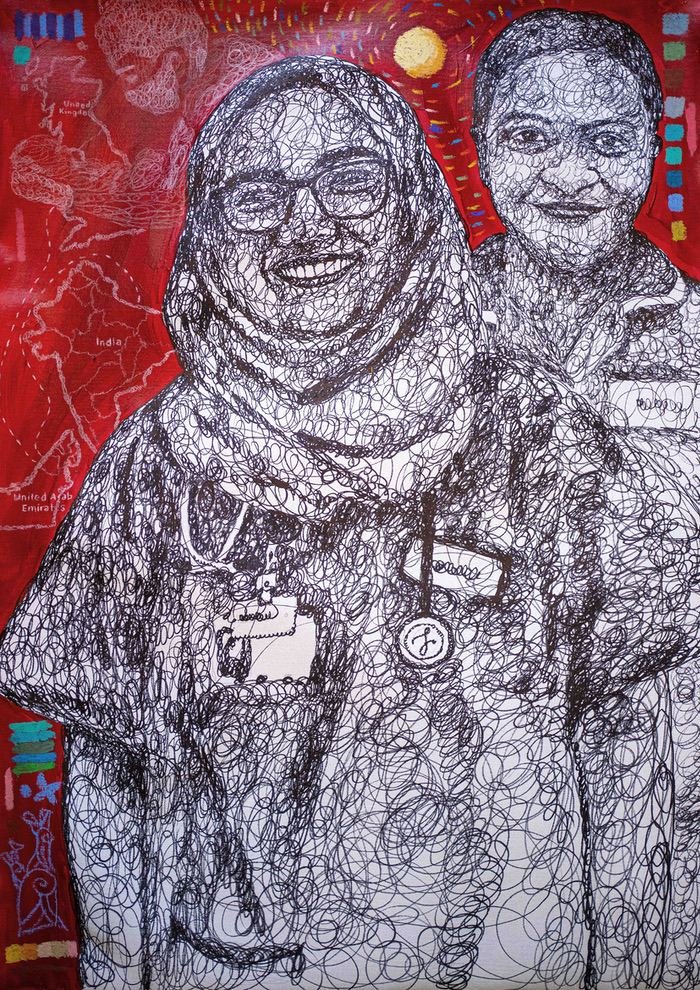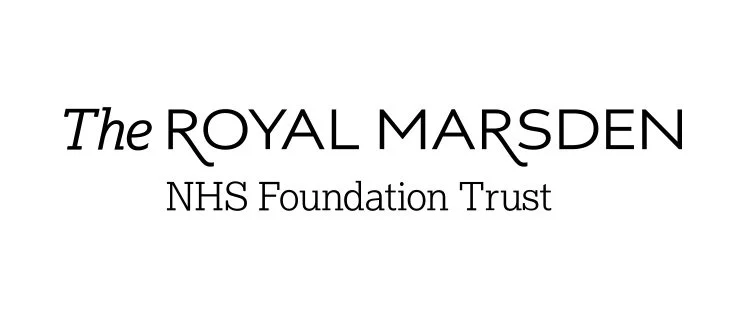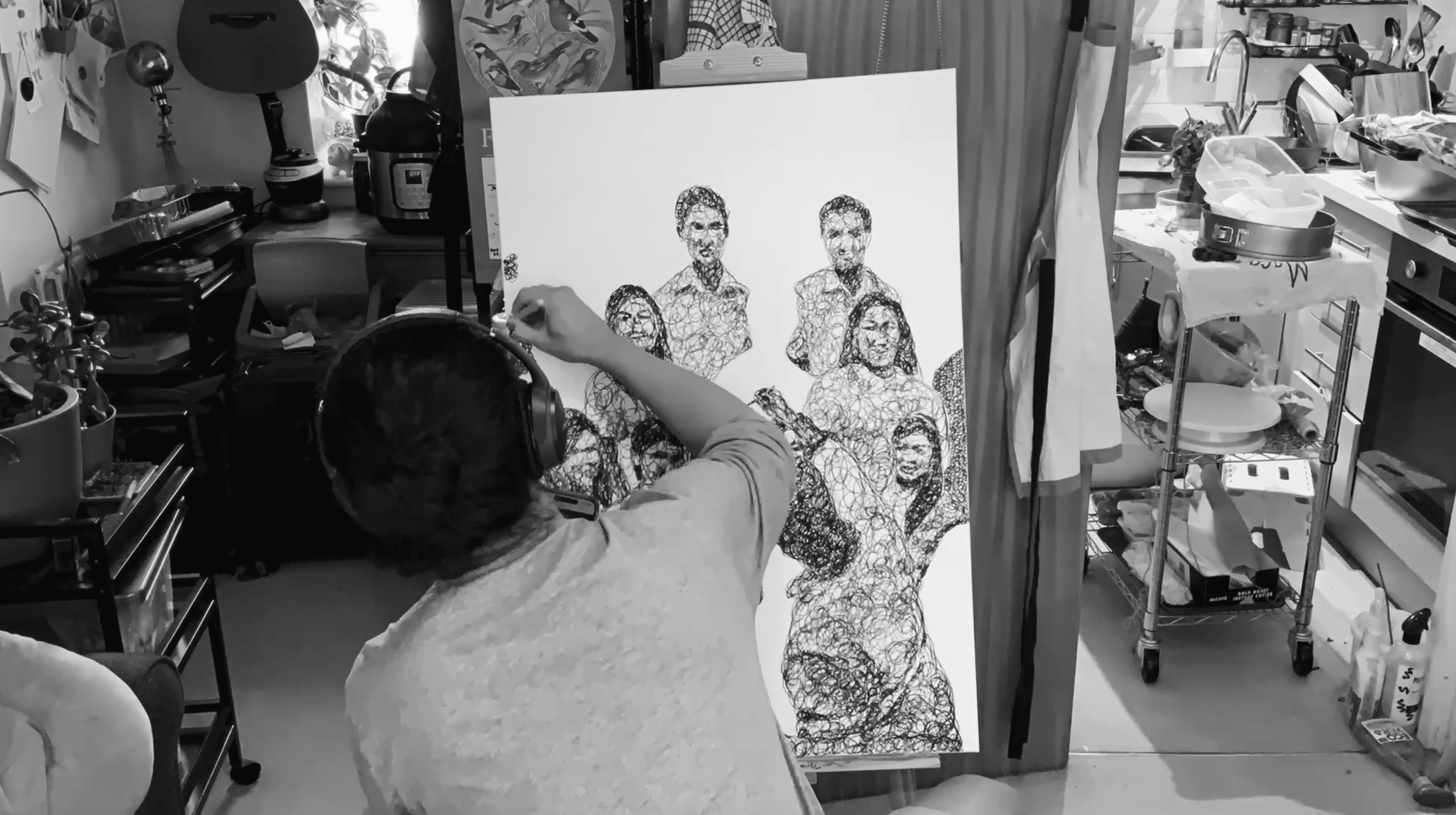
Embers of Care.
“Embers of Care” is a 100-painting series celebrating the strength, resilience, and contributions of migrants in the UK healthcare sector.
This project is inspired by Yayen’s transition to working as a nurse in the UK. The experience has allowed him to engage in a large diversity of people, stories, and challenges.
Relocating to a new country has revealed to him incredible resilience within migrant communities in the sector, who bravely navigate tough transitions: cultural shifts, isolation, sacrifices, and many others. He believes art can powerfully celebrate achievements, highlight resilience, and foster pride and a sense of belonging.
Through art, Yayen seeks to bring visibility to the often unseen hands and overlooked stories of the healthcare system.




This abstract painting titled Journey explores the themes of life, its journey, and the diversity inherent within.
This artwork is included among the paintings of Royal Marsden Hospital, London.
"We Are One, I" is a visual testament to the significance of diversity and inclusion in healthcare. The painting communicates that there is strength in a collective, but the true power lies in diverse experiences, perspectives, and identities. The representation and involvement of people from all walks of life are vital to progressing as a unified collective. The artwork is part of Royal College of Nursing’s permanent collection.

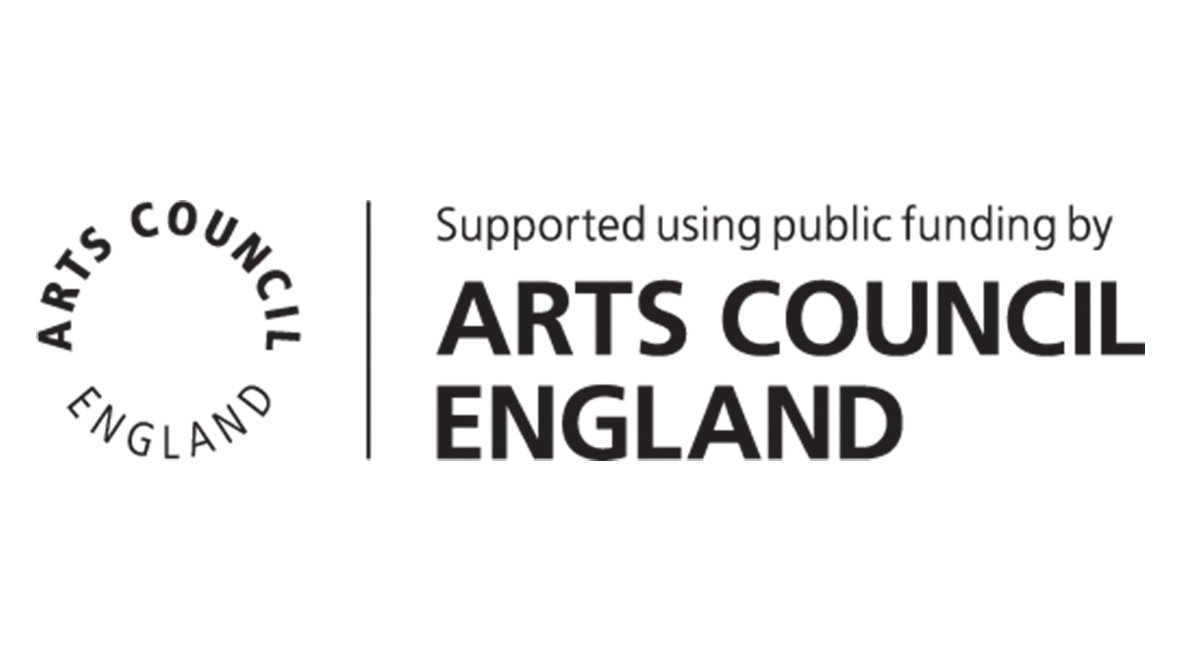
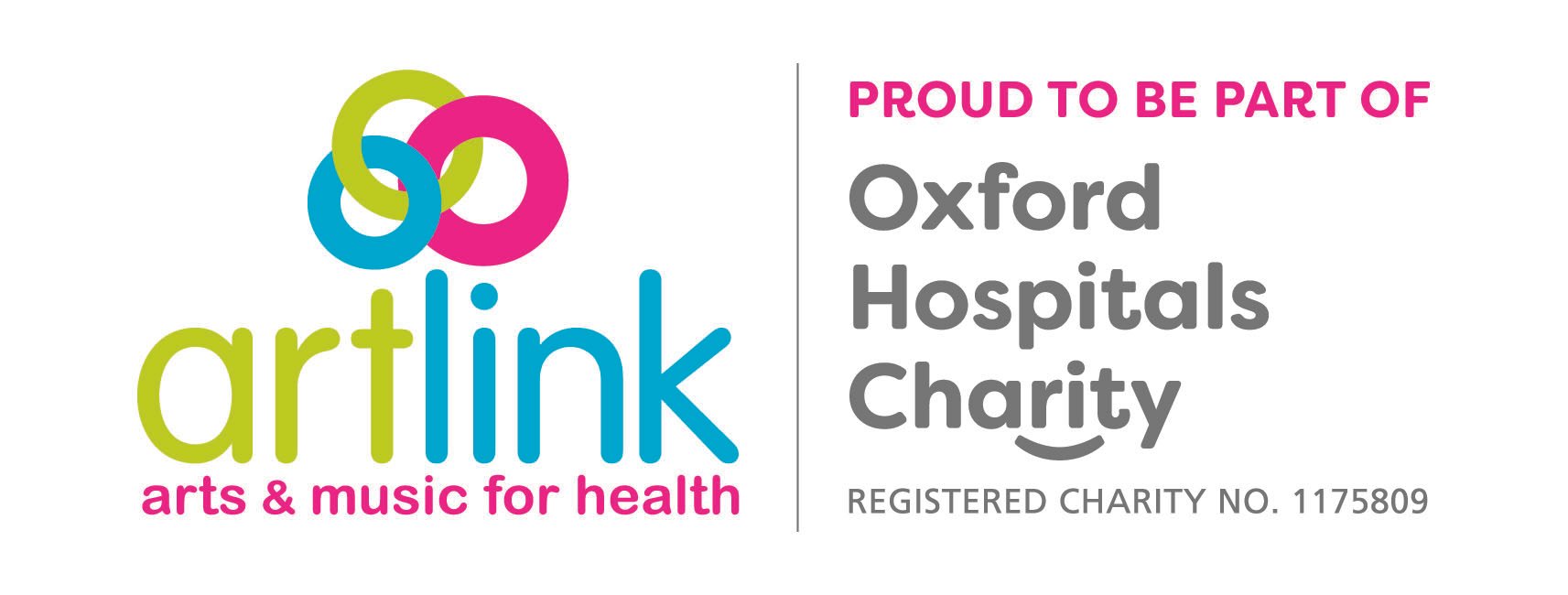



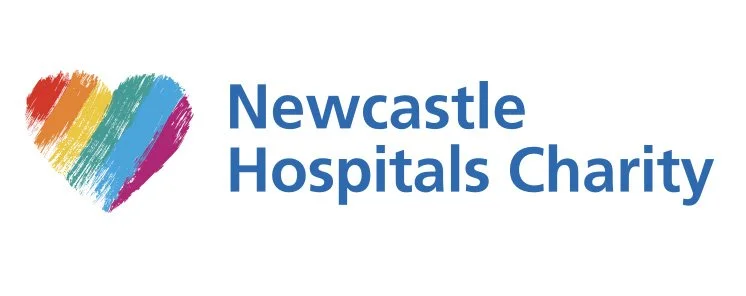
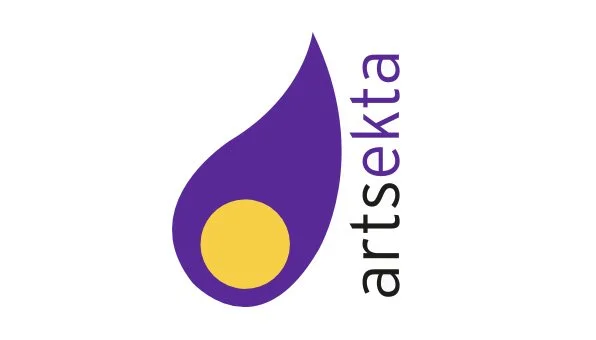
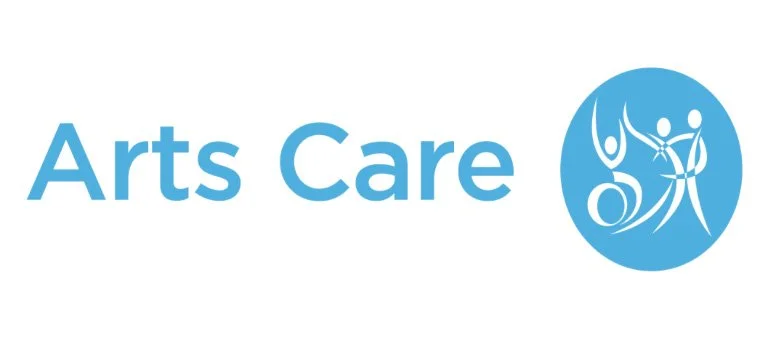
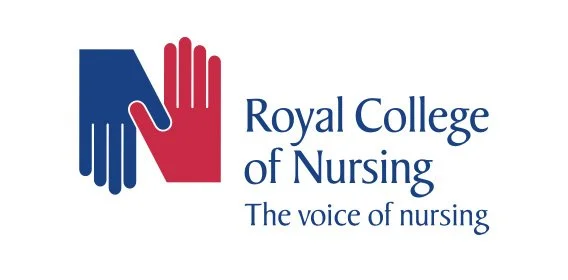
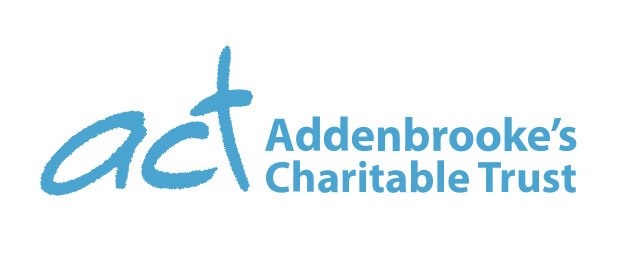

The Embers of Care artworks are part of permanent collections of different hospitals and created in collaboration with institutions across the UK. Current exhibitions include Sheffield Teaching Hospitals, Coventry and Warwickshire NHS Foundation Trust, ArtsEkta Gallery (Northern Ireland) and Oxford University Hospitals.


